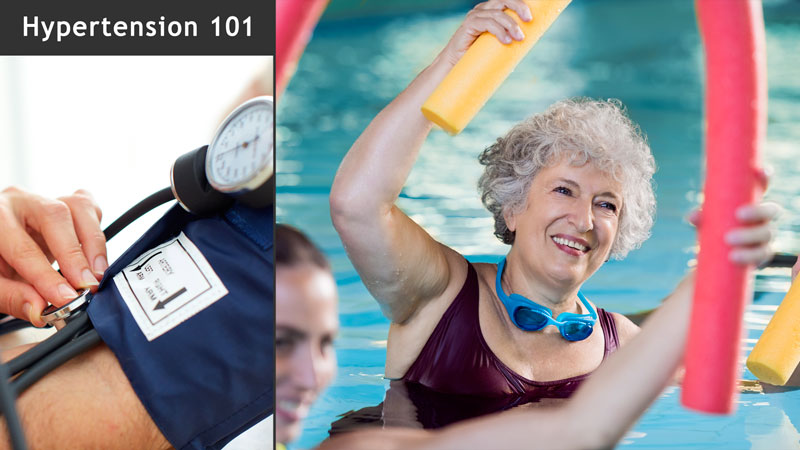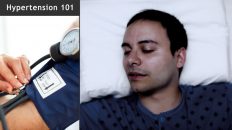By Marc Braman, MD, MPH
Marc Braman(MD, MPH):
Exercise and hypertension. What is exercise to our vascular system? It’s kinda of like a massage, it’s conditioning the plumbing system and it’s exercising again that, endothelium, that layer inside our blood vessels that actually make up the primary tissue, if you will, keeping things healthy. Now, I had a little bit of an eye opening experience years ago. I was actually doing my internship year, took some precious time to go an NIH Consensus Development conference in Washington D.C. Talking about cardiovascular health and physical activity. And what they found, they took people with high blood pressure. One group they had do exercise, the other group they put on medication.
Who do you think lowered their blood pressure more? It was actually the medication people. Who do you think had fewer heart attacks and fewer deaths? The exercisers, even though their blood pressure numbers were higher than the pill people. This was an ‘ah ha’ moment for me. What we’re actually after is fewer heart attacks and fewer deaths. We’re not just after, as our final end goal, better numbers on some crazy report. So, we need to keep the majors the majors and the minors the minors and keep the flow in the right order as we go about this.
So, how much exercise do I need to do to get blood pressure benefit to stay normal and healthy? Good news it’s actually, not that much. 30 to 40 minutes a week will drop your blood pressure on average, the top number, about seven points. This is per week. 60 to 80 minutes per week, it’s only about an hour, may drop it 14 points based on the science. This is not that big of a deal. Now, what kinds of exercise get us what kind of benefit? Now, these numbers are not necessarily additive, they may be for you, but let’s look at this. Aerobic exercise will reduce our blood pressure about five to eight points. Resistance exercise, you know like the weights kinds of stuff, about four points. And isometric resistance, which are things that may not be in your radar such as, a hand grip exercise that you grip and hold, may lower your pressure about five points.
Now that’s in the ballpark of medications oftentimes, depending on the dose. Now, if weight is your issue and your blood pressure’s tied to your weight, here’s a tip. Interval training, where you do active exercise for 10, 20, 30, 60 seconds and you kind of coast. Exercise, coast, exercise, coast. People doing exercise like that spend less exertion and got more weight and fat loss. Pretty crazy, pretty impressive but there’s good science to this. So, there’s some fun tricks in there, depending on your schedule and what you want to do. Both aerobic and resistance training get you good benefit.
And just a word of caution, if your blood pressure is really high, 180 on the top number 120 on the bottom, those kind of ballparks. Or your symptomatic, you’re having symptoms that you know are from your blood pressure. Changes in vision, headaches, so forth. Back off on the exercise. Maybe a gentle walk, nothing really intense until things settle down. Now just a mention of this isometric hand grip exercise. Some pretty interesting data on this and it looks very promising, there’s a number of ways that it may work. But just a prolonged, relatively forceful grasp seems to have a resetting affect on the vascular system.
Bottom line, exercise great for your heart, great for your blood vessels and your blood pressure. Make your blood vessels and your heart happy, use them.
Guidelines Made Simple | 2017 Guideline for the Prevention, Detection, Evaluation, and Management of High Blood Pressure in Adults. Whelton P, Carey R, et al. American College of Cardiology. Jun 4, 2018.
How much exercise is required to reduce blood pressure in essential hypertensives: a dose-response study. Ishikawa-Takata K, Ohta T, Tanaka H. Am J Hypertens. 2003 Aug;16(8):629-33.





